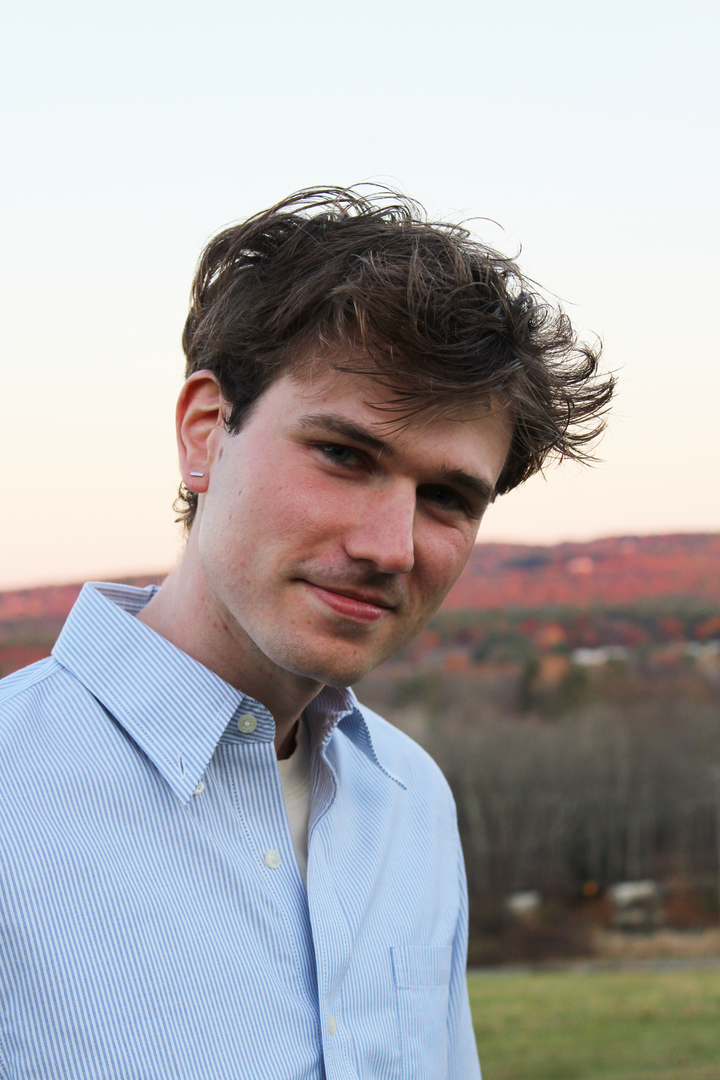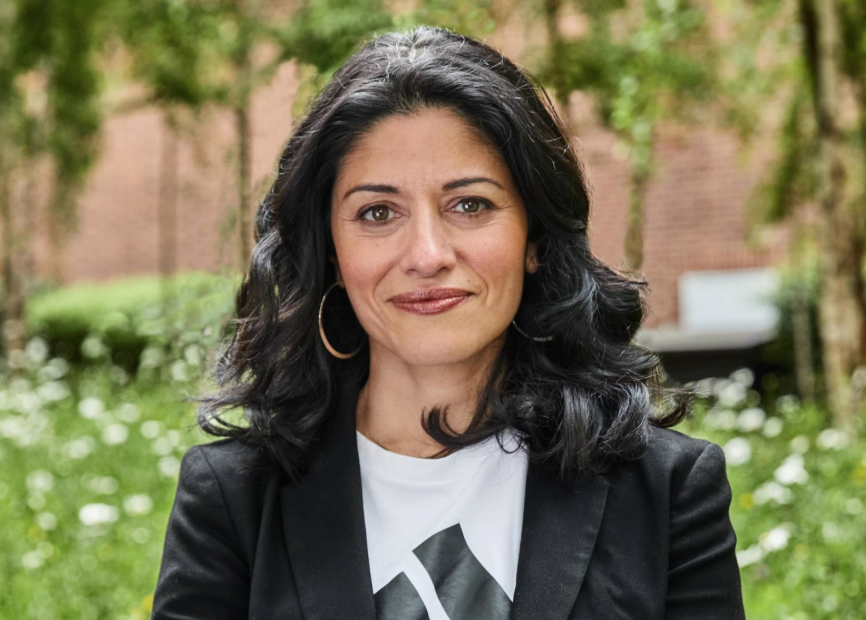Serving the Community, Amherst and Beyond — Alumni Profile, Deborah Cook Kaliel ’00
Working for USAID, Deborah Cook Kaliel ’00 is building sustainable HIV programs across the world.

When I first talked to Deborah Cook Kaliel ’00 through a Zoom screen, she was over 7,000 miles and six hours in time zones away — in Malawi, on a trip for work.
Cook Kaliel works at the U.S. Agency for International Development (USAID), in the Global Health Bureau, and is involved in the President’s Emergency Plan For Aid Relief (PEPFAR), a U.S. government program founded in 2003 that aims to eliminate HIV as a public health threat by 2030. She’s been working at USAID for close to two decades, primarily focusing on global health.
“Part of what I work on now is building sustainable HIV programs so that if donor resources decline in the future, there are … lasting national programs for governments and local organizations to keep that programming going,” she explained. The President’s Emergency Plan For Aid Relief has been credited with saving 25 million people and providing services to millions more. Cook Kaliel described it as “one of the biggest investments in public health ever made” at a Loeb Center trek.
Tomorrow, she told me, she’s looking forward to “getting to see some of the kind of work in action.”
She’s excited to visit the actual health facilities that USAID’s direct government funding supports, and to see “some of the challenges and the benefits of working with USAID in these programs.”
The skills she uses in her career now were first honed at Amherst.
At Amherst
Cook Kaliel came to Amherst because she was interested in a small liberal arts college, and wanted to stay relatively close to her home state of Connecticut. Amherst’s strong academics and small class sizes — as well as its women’s tennis team — were also strong incentives. At Amherst, she played tennis and squash and participated in the ski team.
Cook Kaliel was a law, jurisprudence, and social thought (LJST) major, and cited William Nelson Cromwell Professor of Jurisprudence and Political Science Austin Sarat, as an influence.
“He and others at Amherst really push you in class to not just repeat back information you’d read, but to try to really think critically about what you’re reading, and how you interpret things, and what you might do differently,” she said.
Cook Kaliel saw LJST as not just about policies, but about the social factors behind them — not just the literal words on a page, but rather, the deeper influences that shape the way they’re put into practice. As a student at Amherst, she was an active volunteer, engaged with a variety of programs to help serve the community — such as one that met with incarcerated people in a local county jail to talk about decision-making. “I felt like that also made me really want to get involved … to help people in tough situations,” she said. It was only the beginning of a commitment to serving incarcerated women that would continue past her graduation.
She also tutored refugee children and served on a student disciplinary action committee, as well as working, as part of a service learning component for a political science class, as a “support person” for women going to court for gendered violence. To her, it’s important to “not just read about policies [and] philosophies, but to … go see things in real life.” In an often theory-heavy institution, I see Cook Kaliel’s long-standing commitment to active engagement over abstract discussion as exceptional.
“I was very … inspired and got a lot of energy from doing community volunteer work outside of class. And that led, I think, to my passion for development work and public health work,” she said. Her father’s work as a pediatrician was also a source of inspiration.
One summer at Amherst, she went to Ecuador for a community health internship and loved the experience. “I was so excited by the work,” she recalled, “and public health is a great way to help not just individuals but help communities with bigger picture approaches to helping people’s health.”
She sees a “common thread” across her career of learning about theory and implementing it into practice. “That connection between theory and people’s reality has given me passion and energy to pursue solutions to public health challenges for my career,” she said, adding that she “recommend[s] it for all students!”
Cook Kaliel speaks warmly of Amherst as an alumna. Besides her positive memories of studying and volunteering, it was where she met her now-husband, so it “has a special place in [their collective] heart.” They started dating as freshmen, when they both lived in the same dorm, and then broke up. Years after graduating, they reconnected and rekindled the flame. They married in 2007, and their wedding was documented by the New York Times. They have three children together, and her oldest “hopes he can attend a school like Amherst someday.”
A Commitment to Public Service
After college, Cook Kaliel went into the Peace Corps in Paraguay, and then into the Harvard School of Public Health, where she focused on society and human development. She also took a class at Harvard’s John F. Kennedy School of Government, where she learned about the “public policy side of health.” She compared Harvard to LJST at Amherst, where “social determinants” were major topics of discussion. Her interest in women’s rights and prisoners’ rights continued past undergrad, and she worked with incarcerated women near Boston as a grad student at Harvard.
She also did research on a prison in the northeastern Brazilian city of Recife, where she helped create a survey on women’s experiences prior to incarceration.
She joined the federal government after graduate school through the Presidential Management Fellows program, a two-year leadership program for recent grad school graduates to work in the federal government. She began at the National Institutes of Health, but moved to USAID shortly after joining the program.
She characterized the transition from school to work as “easy”, given her experience in the Peace Corps, and said she joined at an “exciting time” due to the recent creation of the President’s Emergency Plan for AIDS Relief program. “They needed staff urgently to run new programs, and it was an amazing opportunity to be part of this successful program that I have witness[ed] grow and achieve huge results over the last 17 years,” she said.
At Amherst, she acted locally, but since graduating, she’s broadened her scope.
Her work to build HIV sustainability strives to help not just individual people, but communities or even countries, and has had untold impacts across the world.
She credited her alma mater as a driving force in her life.
“Amherst gave me opportunities,” she says, “to learn from great teachers at the same time as doing service work that complemented what I was learning. That was so rewarding for me and inspired me to continue to want to do more of that public service work after Amherst too.”





Comments ()